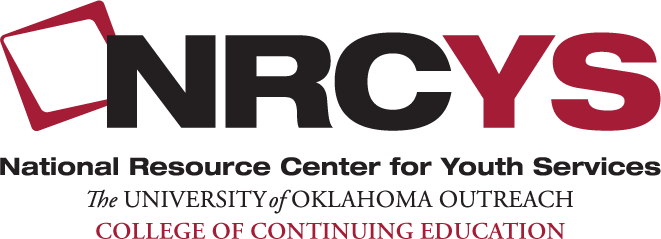About NRCYS
For 50 years, The University of Oklahoma Outreach, National Resource Center for Youth Services (NRCYS) has been improving the effectiveness of human services through training, capacity-building consultation, and other services.
Over the years, our resources have helped to support the missions of a variety of human service organizations in Oklahoma and across the nation.
our services
NRCYS is committed to providing you with timely, practical resources so that you can, in turn, provide the best care to the children, youth, and families you serve. We have confidence in our services and resources, because every year we speak to hundreds of youth, families, and youth care professionals about what works and what is needed to help children, youth, and families grow and thrive.
Core Principles
All of the resources and services provided by NRCYS are grounded in four core principles for working with children, youth, and families:
Trauma Responsiveness>
Professionals in trauma responsive systems recognize the prevalence and impact traumatic stress has, not only on children, youth, and their families who seek services and support, but also on the professionals working within our systems of care.
Further, trauma responsive professionals then act in a manner to minimize re-traumatization, increase opportunities for empowerment, and facilitate growth and healing.
Lieberman, L. (n.d.) Walking the walk: Modeling trauma informed practice in the training environment. From Becoming Trauma Informed, Multiplying Connections Collaborative. Retrieved from: http://multiplyingconnections.org/become-trauma-informed/tools-become-trauma-informed
National Center on Domestic Violence, Trauma, and Mental Health (2014). Creating a trauma-informed training environment. Retrieved from: http://www.nationalcenterdvtraumamh.org/wp-content/uploads/2014/09/Creating-TI-Training-Environments-updated9-1.22.14-FINAL.pdf
Youth Development>
Youth Development is an ongoing process that begins at birth. It is the process by which infants, children, and adolescents are guided by supportive people to build the skills, attitudes, knowledge, and experiences that prepare them for the present and future. The process should be seen as an ongoing, inevitable process in which the individual is engaged and invested.
When a strength-based approach is used and youth are seen as resources with contributions to their plans, they will be more willing to participate in the services and supports provided. Participation in and success at achieving goals builds confidence and a willingness to tackle more difficult tasks and goals.
Permanent Connections>
All young people need lifelong connections. The work of professionals and agencies is not done until every young person has a viable support system in place to sustain them in times of crisis. This may be family or other community supports.
Collaboration>
The process of assisting young people is not just one agency's or one family's responsibility. Communities must work together to help young people grow into successful members.
